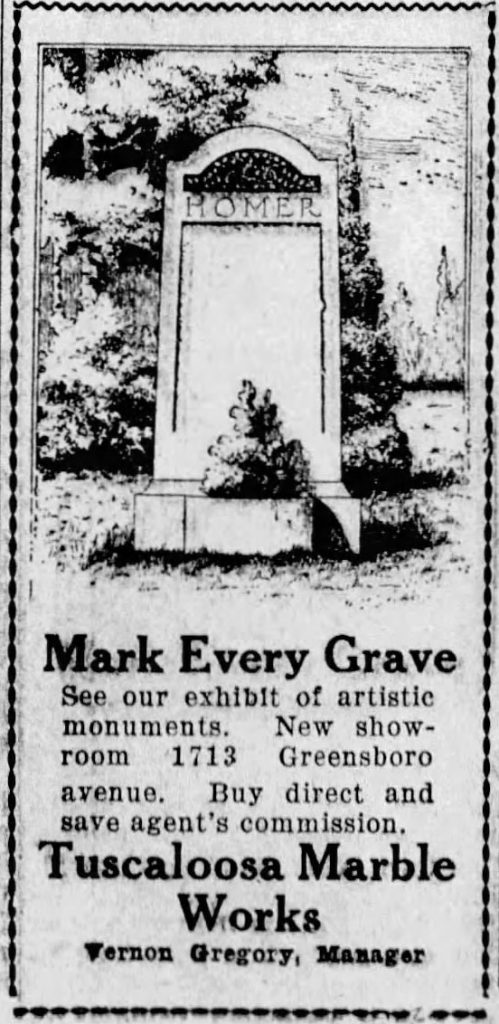
While in Tuscaloosa visiting his sisters in 1895, Thomas H. Wildman decided to open a new Marble Works in Alabama. Wildman gained experience in the marble business as foreman at Marietta Marble Works in Marietta, Georgia before starting Tuscaloosa Marble Works.
By 1908, Tuscaloosa Marble works was quite successful, enabling Wildman to expand to Birmingham, Alabama. Wildman and partner R. C. Richards purchased Birmingham Marble Works after proprietor Lawrence N. Archer passed. Birmingham Marble Works was originally established in 1880 by Thomas Holt.
Wildman sold half of his interest in Tuscaloosa Marble Works to C.B. Barkalow in 1912 so that he could focus on the out-of-town business. He opened a third shop in Chattanooga, Tennessee.
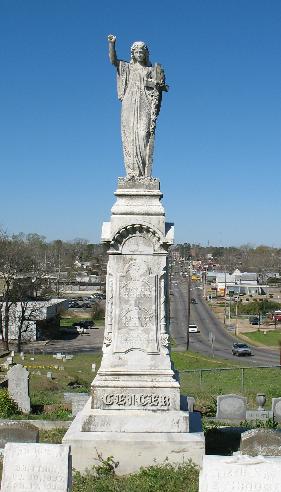
Wildman was described by the Tuscaloosa Weekly Times in 1899 as an “expert designer and sculptor and can produce his own conceptions by his own skilled handicraft” as well as “an artistic monument designer and manufacturer and as a pleasant man with whom to transact business.”
Tuscaloosa Marble Works was not limited to mortuary work, they also furnished the cut stone for the Gorgas Memorial library, University Post Office, Cavalry Baptist Church, the Tuscaloosa high school, the First Presbyterian Church, the Druid city hospital and many other buildings in Tuscaloosa.
The Geiger Memorial, at left, is one of Wildman’s finer works and is at the Rose Hill Cemetery in Meridian, Mississippi.
Wildman frequently signed his work as T. H. Wildman, Tuscaloosa or T.H. Wildman, Tusklsa.

Thomas H. Wildman (1869-1941), was born at Anderson, SC, the son of Thomas Wildman and Mary Murphy Wildman. Wildman is buried at Evergreen Cemetery in Tuscaloosa next to his wife. Wildman married Miss Carrie Turner in 1920 who died in 1926 after six short years of marriage at the age of 45.
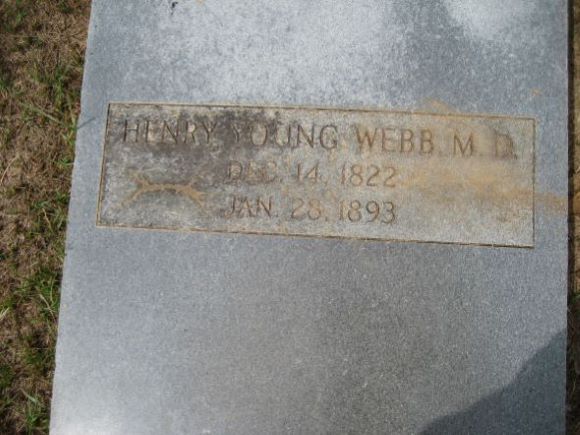
Mesopotamia Cemetery, Eutaw, Alabama 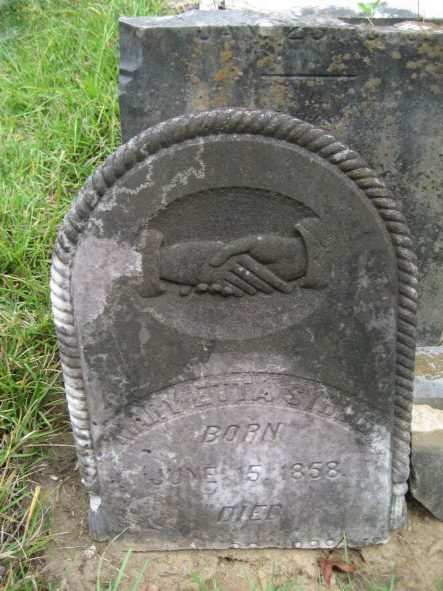
Mary Etta Syring, Stokes Cemetery, Hale County, Alabama 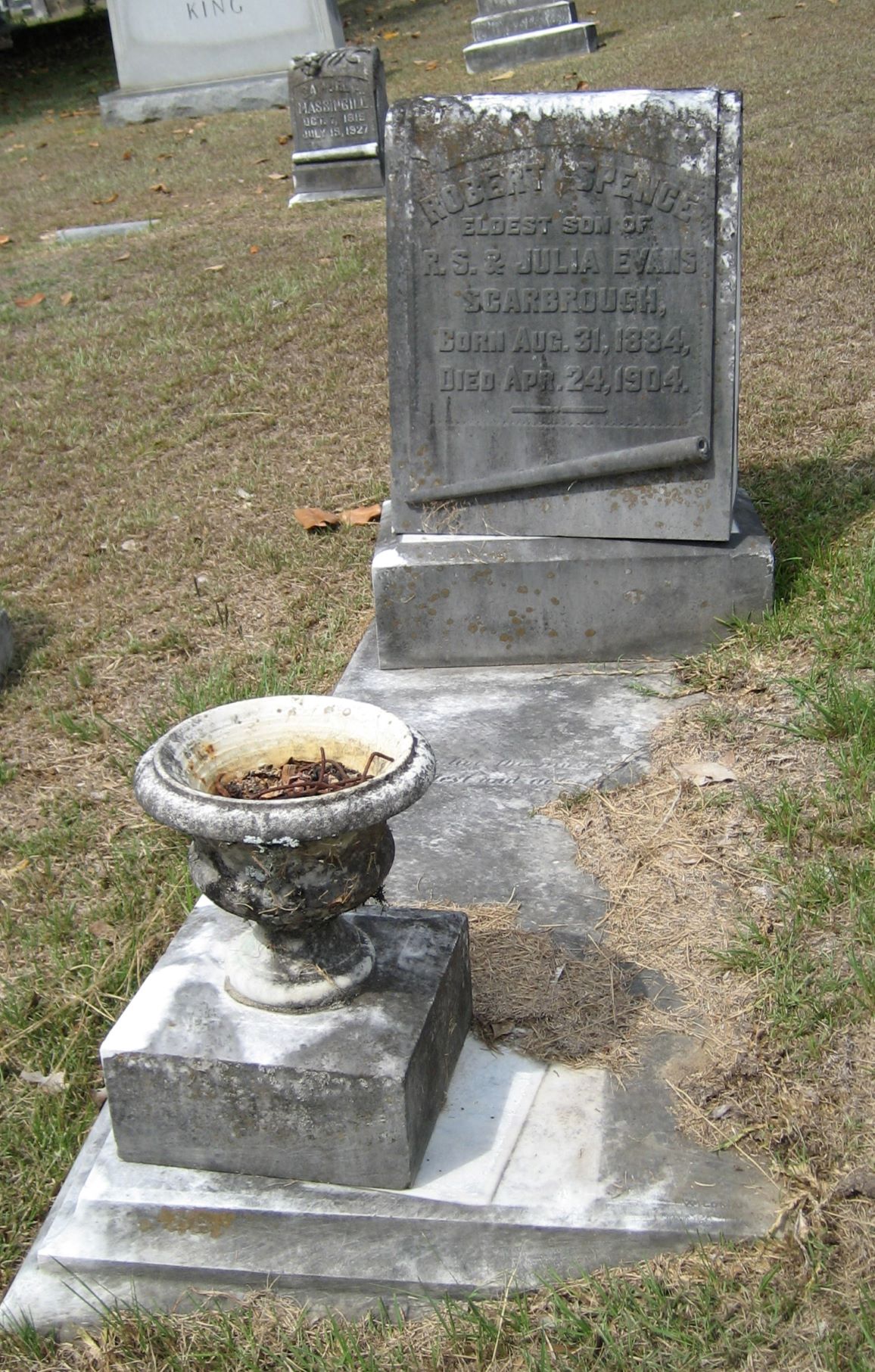
Robert Scarbrough, Mesopotamia Cemetery, Eutaw, Alabama 
Cochrane, Greenwood Cemetery, Tuscaloosa, Alabama